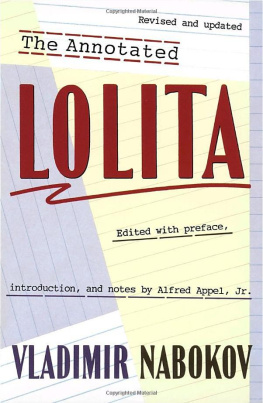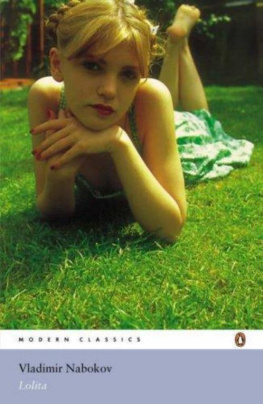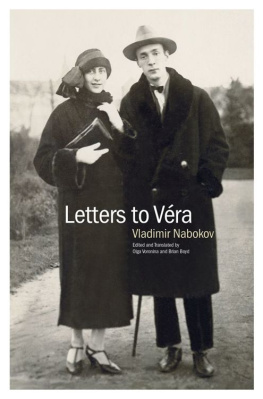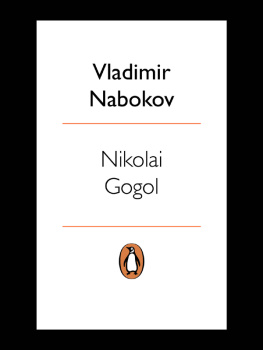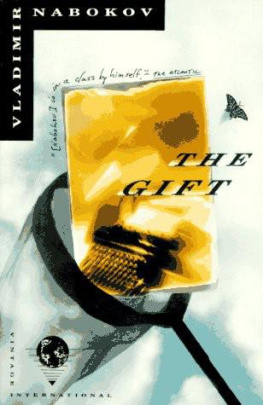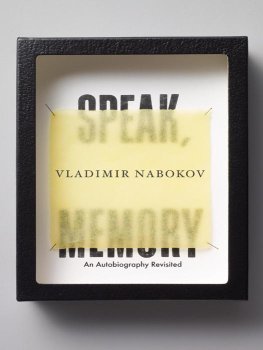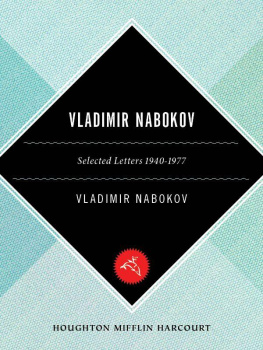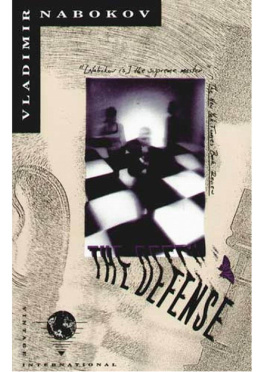Vladimir Nabokov - Mary
Here you can read online Vladimir Nabokov - Mary full text of the book (entire story) in english for free. Download pdf and epub, get meaning, cover and reviews about this ebook. genre: Prose. Description of the work, (preface) as well as reviews are available. Best literature library LitArk.com created for fans of good reading and offers a wide selection of genres:
Romance novel
Science fiction
Adventure
Detective
Science
History
Home and family
Prose
Art
Politics
Computer
Non-fiction
Religion
Business
Children
Humor
Choose a favorite category and find really read worthwhile books. Enjoy immersion in the world of imagination, feel the emotions of the characters or learn something new for yourself, make an fascinating discovery.

- Book:Mary
- Author:
- Genre:
- Rating:5 / 5
- Favourites:Add to favourites
- Your mark:
- 100
- 1
- 2
- 3
- 4
- 5
Mary: summary, description and annotation
We offer to read an annotation, description, summary or preface (depends on what the author of the book "Mary" wrote himself). If you haven't found the necessary information about the book — write in the comments, we will try to find it.
Mary — read online for free the complete book (whole text) full work
Below is the text of the book, divided by pages. System saving the place of the last page read, allows you to conveniently read the book "Mary" online for free, without having to search again every time where you left off. Put a bookmark, and you can go to the page where you finished reading at any time.
Font size:
Interval:
Bookmark:
Having recalled intrigues of former years,
having recalled a former love.
PushkinTranslated from the Russian by Michael Glenny in collaboration with the Author
1
Lev Glevo. Lev Glebovich? A name like thats enough to twist your tongue off, my dear fellow.
Yes, it is, Ganin agreed somewhat coldly, trying to make out the face of his interlocutor in the unexpected darkness. He was annoyed by the absurd situation in which they both found themselves and by this enforced conversation with a stranger.
I didnt ask for your name and patronymic just out of idle curiosity, you know, the voice went on undismayed. I think every name
Let me press the button again, Ganin interrupted him.
Do press it. Im afraid it wont do any good. As I was saying every name has its responsibilities. Lev and Gleb, now thats a rare combination, and very demanding. It means youve got to be terse, firm and rather eccentric. My name is a more modest one and my wifes name is just plain Mary. By the way, let me introduce myself: Aleksey Ivanovich Alfyorov. Sorry, I think I trod on your foot
How do you do, said Ganin, feeling in the dark for the hand that poked at his cuff. Do you think we are going to be stuck here for long? Its time somebody did something. Hell.
Lets just sit down on the seat and wait, the tiresome, cheerful voice rang out again just above his ear. Yesterday when I arrived we bumped into each other in the passage. Then in the evening, through the wall, I heard you clearing your throat and I knew at once from the sound of your cough that you were a fellow countryman. Tell me, have you been boarding here for long?
Ages. Got a match?
No. I dont smoke. Grubby place, this pension even though it is Russian. Im a very lucky man, you know my wifes coming from Russia. Four years, thats no joke. Yes, sir. Not long now. Its Sunday today.
Damned darkness, muttered Ganin, and cracked his fingers. I wonder what time it is.
Alfyorov sighed noisily, giving off the warm, stale smell of an elderly man not in the best of health. There is something sad about that smell.
Only six more days now. I assume shes coming on Saturday. I had a letter from her yesterday. She wrote the address in a very funny way. Pity its so dark, or Id show it to you. What are you fumbling for, my dear fellow? Those little vents dont open, you know.
For two pins Id smash them, said Ganin.
Come, come, Lev Glebovich. Wouldnt it be better to play some party game? I know some splendid ones, I make them up myself. For instance: think of a two-figure number. Ready?
Count me out, said Ganin, and thumped twice on the wall with his fist.
The porters been asleep for hours, droned Alfyorovs voice, so its no use banging like that.
But you must agree that we cant hang here all night.
It looks as if we shall have to. Dont you think theres something symbolic in our meeting like this, Lev Glebovich? When we were on terra firma we didnt know each other. Then we happen to come home at the same time and get into this contraption together. By the way, the floor is horribly thin and theres nothing but a black well underneath it. Well, as I was saying, we stepped in without a word, still not knowing each other, glided up in silence and then suddenly stop. And darkness.
Whats symbolic about it? Ganin asked gloomily.
Well, the fact that weve stopped, motionless, in this darkness. And that were waiting. At lunch today that man whats his name the old writer oh yes, Podtyagin was arguing with me about the sense of this migr life of ours, this perpetual waiting. You were absent all day, werent you, Lev Glebovich?
Yes. I was out of town.
Ah, spring. It must be nice in the country now.
Alfyorovs voice faded away for a few moments, and when it sounded again there was an unpleasant lilt to it, probably because the speaker was smiling.
When my wife comes I shall take her out into the country. She adores going for walks. Didnt the landlady tell me that your room would be free by Saturday?
That is so, Ganin replied curtly.
Are you leaving Berlin altogether?
Ganin nodded, forgetting that nods were invisible in the dark. Alfyorov fidgeted on the seat, sighed once or twice, then began gently whistling a saccharine tune, stopping and starting again. Ten minutes passed; suddenly there came a click from above.
Thats better, Ganin said with a smile.
At the same moment the ceiling bulb blazed forth, and the humming and heaving cage was flooded with yellow light. Alfyorov blinked, as though just waking up. He was wearing an old sandy-colored, formless overcoat of the so-called in-between-season sort and holding a bowler hat. His thin fair hair was slightly ruffled and something about his features reminded one of a religious oleograph: that little golden beard, the turn of that scraggy neck from which he pulled off a bright-speckled scarf.
With a lurch the lift caught on the sill of the fourth-floor landing and stopped.
A miracle, Alfyorov said, grinning, as he opened the door. I thought someone had pressed the button and brought us up, but theres no one here. After you, Lev Glebovich.
But Ganin, with a grimace of impatience, gave Alfyorov a slight push and, having followed him out, relieved his feelings by noisily slamming the steel door behind him. Never before had he been so irritable.
A miracle, Alfyorov repeated. Up we came and yet theres no one here. Thats symbolic too.
2
The pension was both Russian and nasty. It was chiefly nasty because all day long and much of the night the trains of the Stadtbahn could be heard, creating the impression that the whole building was slowly on the move. The hall, where there hung a bleary mirror with a ledge for gloves, and where stood an oak chest so placed that people naturally barked their shins on it, narrowed into a bare and very cramped passage. Along each side were three rooms, numbered with large black figures stuck onto the doors. These were simply leaves torn off a year-old calendar the first six days of April, 1923. April I the first door on the left was Alfyorovs room, the next was Ganins, while the third belonged to the landlady, Lydia Nikolaevna Dorn, the widow of a German businessman who twenty years ago had brought her here from Sarepta and who the year before had died of brain fever. In the three rooms down the right-hand side April 4 to 6 there lived Anton Sergeyevich Podtyagin, an old Russian poet; Klara, a full-busted girl with striking bluish-brown eyes; and, finally, in room 6 at the turn of the passage, two ballet dancers, Kolin and Gornotsvetov, both as giggly as women, thin, with powdered noses and muscular thighs. At the end of the first stretch of the passage was the dining room, with a lithograph of the Last Supper on the wall facing the door and the yellow, horned skulls of deer along another wall above a bulbous sideboard. On it stood two crystal vases, once the cleanest things in the whole apartment but now dulled by a coating of fluffy dust.
Upon reaching the dining room, the passage took a right-angled turn to the right. There, in tragical and malodorous depths, lurked the kitchen, a small room for the maid, a dirty bathroom and a narrow W.C., whose door was labeled with two crimson noughts deprived of the rightful digits with which they had once denoted two Sundays on Herr Dorns desk calendar. A month after his death Lydia Nikolaevna, a tiny, slightly deaf woman given to mild oddities, had rented an empty apartment and turned it into a pension. In doing this she showed a singular, rather creepy kind of ingenuity in the way she distributed the few household articles she had inherited. The tables, chairs, creaking wardrobes and bumpy couches were divided among the rooms which she intended to let. Separated, the pieces of furniture at once faded, took on the inept, dejected look of a dismembered skeletons bones. Her late husbands desk, an oaken monster with a cast-iron inkwell in the form of a toad and with a middle drawer as deep as a ships hold, found its way to room 1, where Alfyorov now lived, while the revolving stool, originally bought to match the desk, was parted from it and led an orphaned existence with the dancers in room 6. A pair of green armchairs was also severed: one pined in Ganins room, and the other one was used by the landlady herself or by her old dachshund, a fat black bitch with a gray muzzle and pendulous ears that had velvety ends like the fringes of a butterflys wing. The bookshelf in Klaras room was adorned by the first few volumes of an encyclopedia, while the remaining volumes were allotted to Podtyagin. Klara had also been given the only decent washstand, with a mirror and drawers; in each of the other rooms there was simply a squat wooden prop and on it a tin basin and a jug of the same material. She had been forced, however, to buy additional beds. This caused Frau Dorn considerable pain, not because she was stingy, but because she had derived a kind of delicious thrill, a sense of pride in her own thrift, from the way she had distributed all her previous furniture. Now that she was a widow and her double bed too spacious for her to sleep in, she resented being unable to saw it up into the required number of parts. In a haphazard way she cleaned the rooms herself, but she had never been able to cope with food, so she kept a cook the terror of the local market, a vast red-haired virago who on Fridays donned a crimson hat and sailed off for the northern quarters where she traded her blowsy charms. Lydia Nikolaevna was afraid of going into the kitchen and was altogether a quiet, timorous creature. Whenever her blunt-toed little feet brought her pattering along the corridor, the lodgers always had the feeling that this gray, snub-nosed little creature was not the landlady at all, but just some silly old woman who had strayed into someone elses apartment. Every morning, bent in half like a rag doll, she would hurriedly sweep the dust from under the furniture, then disappear into her room, the smallest of them all. There she would read tattered German books or look through her late husbands papers, whose contents she understood not a whit. The only other person to go into her room was Podtyagin, who would stroke her affectionate black dachshund, tickle its ears and the wart on its hoary muzzle, and try to make the dog sit up and proffer its crooked paw. He would talk to Lydia Nikolaevna about his senile aches and pains and about how he had been trying for six long months to get a visa to go to Paris where his niece lived, and where the long crusty loaves and the red wine were so cheap. The old lady would nod, occasionally questioning him about the other lodgers, in particular about Ganin, whom she found quite unlike all the other young Russians who had stayed in her
Font size:
Interval:
Bookmark:
Similar books «Mary»
Look at similar books to Mary. We have selected literature similar in name and meaning in the hope of providing readers with more options to find new, interesting, not yet read works.
Discussion, reviews of the book Mary and just readers' own opinions. Leave your comments, write what you think about the work, its meaning or the main characters. Specify what exactly you liked and what you didn't like, and why you think so.


